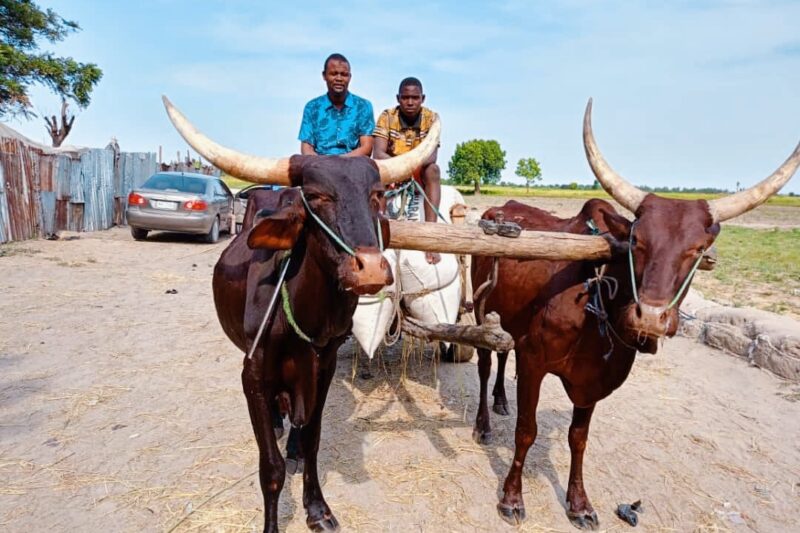Farmers say this year has been very hard because, not only did they have to contend with increasing insurgent attacks and fluctuating rainfall, but they have also had to fight off thieves and herders.
Many farmers are taking their lives into their hands by spending nights in the forest – despite the many attacks by insurgents – to safeguard their produce from starving thieves and herders who allow their animals to graze on their lands.
The farmers, from Gajiganna town in the Nganzai Local Government Area of Borno State, say they are in the middle of harvesting their crops say the government has not done enough to
to ensure their safety and security and they have been forced to protect their farmland themselves.
Goni Modu, a farmer from Gajiganna town, said every year herders graze and destroy their crops.
“It has been happening for years. The herders’ cattle graze our produce, such as beans, groundnuts and maize, among others. And even though the government and traditional rulers know about it, they have kept silent. It’s as if they pretend it’s not happening and they refuse to take any decisive action.
“As a result, we decided to take matters into our own hands and – despite the dangers – we spend the nights in the forest to protect and defend our farmlands. We know the dangers involved and that we might be sacrificing our lives. But we take locally made guns, cutlasses and knives to confront the herders is they come near our farmlands.
“It is imperative for us to take all necessary measures to protect and defend our property from not only from herders and their cattle but also from insurgents and thieves. If we stayed at home hunger would kill us and our families. So, we believe it is better for us to die defending our property.”
Mammodu Gajiganna, a resident and farmer in Gajiganna town, said farmers had struggled and suffered a lot during this year’s seasonal farming.
“We have been attacked many times by insurgents, who have wounded, kidnapped and killed some of the farmers and we have had to deal with erratic rainfall caused by fluctuating weather patterns. Now, we have herders and their cattle destroying our hard work. There has been no attempt by the government to do anything about our problems.”
He said that sometimes the herders use arrows and knives to kill those who tried to stop them allowing their cattle from grazing and destroying people’s farm.
“Since no one is helping us, we decided to face the herders ourselves.”.
Mustapha Adam Kolo, a senior lecturer in the department of geography at the University of Maiduguri, told RNI that the farmer-herder conflicts had become more prevalent in the Lake Chad region, particularly in the local government areas of northern Borno State, such as Abadam, Mobbar, Kukawa and Monguno, among other places in the region.
“There are frequent clashes between the farmers and herders over land and there have been killings on both sides.”
Kolo said that based on research he conducted on the farmer-herder crisis in Borno State it was evident that the rationale behind the clashes was overpopulation.
“Both the numbers of farmers and herders are escalating and there is not enough land to accommodate them all, hence the conflict.”
He said: “The Borno State government had set up a committee to investigate the root causes of the farmer-herder crisis with a view of settling the longstanding disputes.
“I was part of the committee and we have already started discussions with authorities from the Diffa province in neighboring country of Niger. We have conducted comprehensive research regarding the farmer-herder conflicts and we are working on the way forward.”
“One of the measure I suggested to both the federal and Borno State governments was to create more job opportunities to reduce the number of people depending on farming activities. In this way there would be more land for grazing and sustainable jobs for people so that they would not have to rely solely on farming. And, more importantly, it would help put an end to farmer-herder conflicts.
SHETTIMA LAWAN MONGUNO






